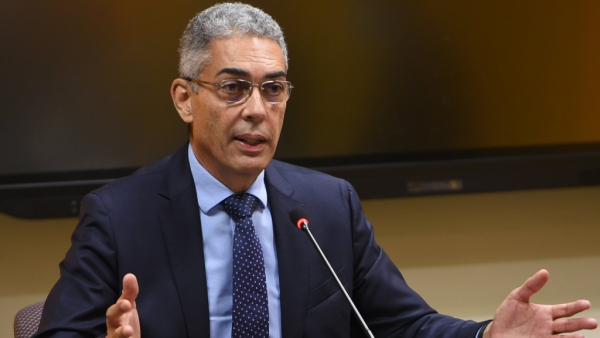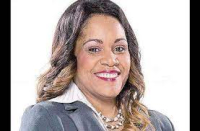Currently, BOJ supervises Deposit-Taking Institutions (DTIs) including commercial banks, building societies, and Jamaica’s sole merchant bank, and arrangements are being finalised for the regulation of credit unions.
The central bank also regulates microcredit institutions, and in keeping with recently announced government policy, is transitioning to the supervision of securities dealers, insurance companies and pension funds.
“I can assure you that the Bank of Jamaica is going to be stepping up its requirement that the internal audit function be upgraded in all financial institutions that we regulate. It must be very capably staffed. It must have the freedom and rights that the internal audit function should have, and it must be of the highest quality in these financial institutions,” Byles said as he gave the keynote address at the opening of a two-day workshop on International Financial Reporting Standards (IFRS), hosted virtually by the Institute of Chartered Accountants of Jamaica (ICAJ), on Friday, January 27.
The theme of the conference was “Business Integrity: Walking the Talk – Accountants and Integrity.”
During his address, Byles said accounting and auditing practitioners are gatekeepers of financial truth and integrity.
“A culture of integrity is as vital for business success as it is for the general health of any financial system anywhere in the world. International Financial Reporting Standards are meant to ensure consistency and transparency in accounting standards across companies and countries,” the BOJ governor stated.
He urged the ICAJ, as an organisation of accounting professionals, to continue monitoring the application of the established standards to prevent the tarnishing of the profession.
Making reference to the wider grouping of accountants and auditors, Byles said their accountability went beyond their employers.
“Accountants do not only answer to their direct bosses within their companies. Auditors have a responsibility not only to those who engage their services. They all have a broader responsibility to truth, integrity and to their professional standards,” he pointed out, noting that the recently announced government policy that all financial institutions will be required to publish their financial statements, places a greater duty of care on accountants and auditors.
He emphasised that accountants and auditors in publicly listed companies in Jamaica also have to answer to regulators, the Jamaica Stock Exchange, investors and the general public.
Governor Byles said the current issue involving Stocks and Securities Limited (SSL) should be a teaching moment for all practitioners in the financial sector.
“I think that for us as regulators, it underscores the absolutely crucial role of having a robust and capable internal audit function in every financial institution and it is important that the internal audit function is restored to its place or primacy,” Byles noted.
He added that in the current macroeconomic climate, there has been much business focus on macro issues including inflation, monetary policy, interest rates and whether there will be a recession in the United States and globally. He said the matter concerning SSL is a reminder that micro issues are equally important in ensuring a healthy financial ecosystem of stability and economic growth.
Byles reminded the practitioners of their professional responsibility to ensure the integrity of the financial statements that they prepare as accountants or certify as auditors.
“Your signature as an auditor means that, as an expert with integrity, you are attesting that international accounting standards have been applied in verifying those numbers. Particularly in a public company, auditors have an even higher responsibility of integrity because there may be hundreds, if not thousands of small shareholders who are depending on their approval of financial statements.” He reminded the workshop participants that the words of auditors have a significant impact as they help investors, financial institutions, statutory regulators and government agencies to perform their functions effectively.
Governor Byles said that the assessment of auditors, based on accounting principles, is critical particularly on subjective issues like the valuations of assets, especially where the value of assets like property has a meaningful impact on companies’ profit and loss statements and balance sheets.
“If, as auditors, you require actuaries to have a second opinion of the assessment of pension funds or insurance funds, you certainly need one for property valuations. I want to strongly ask that of you, to put that into practice – ask for a second valuation to be done, and you name who that valuator should be,” Byles said.
The governor reminded his audience that integrity is one of the most precious assets anybody can possess and that it was important to always uphold integrity as a hallmark of professions and organisations.





